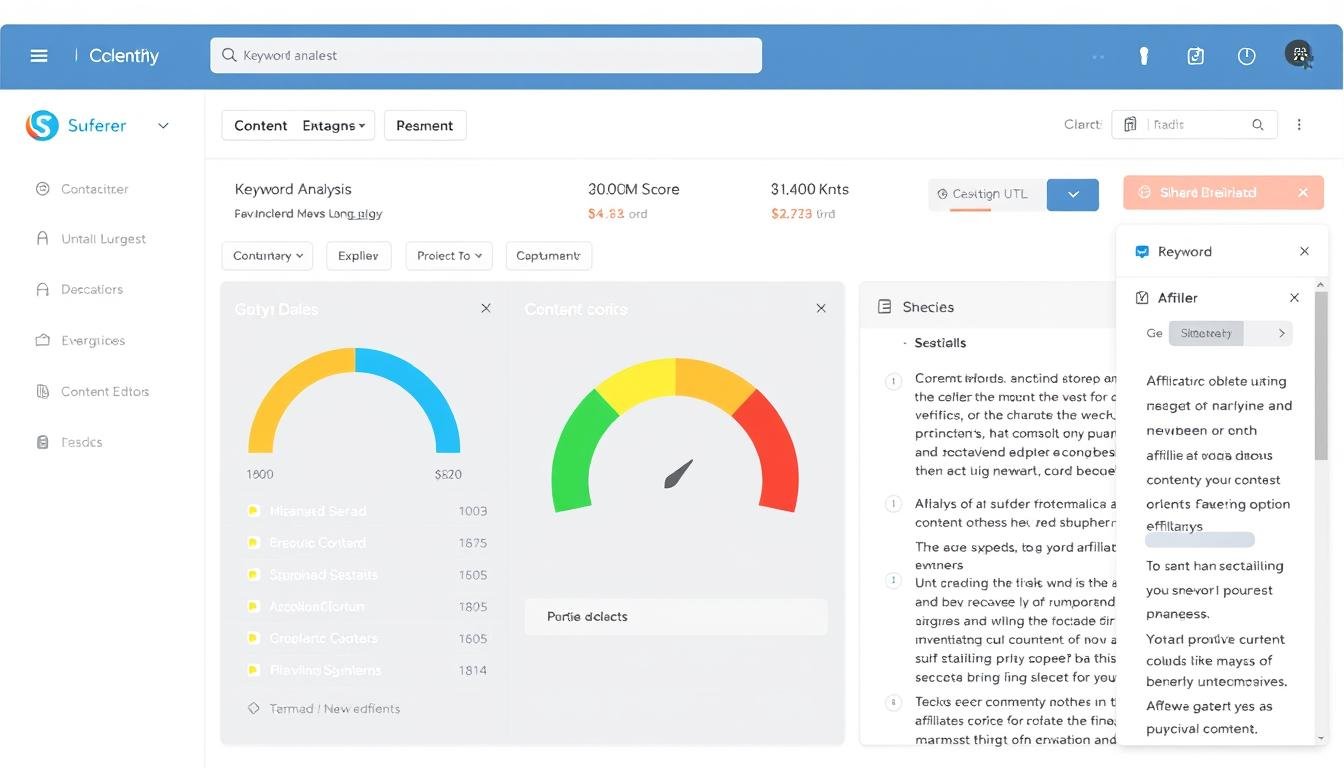As an e-commerce founder, you’re constantly seeking innovative ways to enhance customer experience and stay ahead of the competition. But have you ever wondered: Can artificial intelligence revolutionize the way you interact with your customers?
The answer lies in AI call assistants, which are transforming the e-commerce landscape with real-time voice automation. By leveraging artificial intelligence, businesses can now provide personalized experiences, automate customer service, and improve customer satisfaction.

Integrating AI call assistants into your e-commerce platform is an essential step toward delivering 24/7 personalized support. These smart tools not only enhance customer engagement but also streamline service operations—leading to greater loyalty and long-term retention.
Key Takeaways
- AI call assistants can revolutionize customer experience in e-commerce.
- Real-time voice automation enhances customer engagement.
- Artificial intelligence improves customer satisfaction and loyalty.
- E-commerce businesses can provide personalized experiences with AI call assistants.
- Automating customer service reduces support queries and increases efficiency.
The Evolution of Customer Service in E-Commerce
The landscape of customer service in e-commerce has undergone significant transformations over the years, driven by technological advancements and changing consumer expectations.
Traditionally, customer service was synonymous with call centers, where customers would wait on hold for extended periods, only to have their issues sometimes resolved after multiple interactions. This is where traditional call center challenges come into play.
Traditional Call Center Challenges
Call centers have long been the backbone of customer service in e-commerce, but they are not without their drawbacks. High operational costs, long wait times, and the inability to handle a large volume of inquiries simultaneously are some of the key challenges faced by traditional call centers.
The Shift Towards AI-Driven Solutions
In response to these challenges, businesses have begun to adopt AI-driven solutions. Artificial intelligence (AI) and machine learning (ML) are being leveraged to create more efficient, personalized, and cost-effective customer service experiences.
How Artificial Intelligence is Revolutionizing Customer Interactions
AI is transforming customer interactions by providing 24/7 support, handling multiple inquiries simultaneously, and automating repetitive tasks. This not only improves response times but also enhances customer satisfaction by ensuring that customers receive timely and relevant support.
By implementing AI in customer service, businesses can significantly reduce wait times, improve efficiency, and provide a more personalized experience for their customers.
Understanding AI Call Assistants and Their Core Capabilities
AI call assistants are at the forefront of transforming customer service in the e-commerce sector. These advanced systems are designed to handle customer inquiries, provide support, and even process transactions, all through voice interactions.
What Are AI Call Assistants?
AI call assistants are sophisticated software solutions that utilize artificial intelligence to manage customer calls. They are capable of understanding natural language, processing requests, and responding appropriately, thereby enhancing the customer experience.
Technologies Powering Modern AI Call Assistants
The effectiveness of AI call assistants is rooted in several key technologies:
- Natural Language Processing (NLP): Enables AI call assistants to comprehend and interpret customer queries accurately.
- Machine Learning Algorithms: Allows these systems to learn from interactions and improve their responses over time.
- Voice Recognition Systems: Facilitates the identification and authentication of customers, ensuring secure and personalized interactions.
Natural Language Processing
NLP is a critical component of AI call assistants, enabling them to understand the nuances of human language. This technology allows the system to process complex queries and provide relevant responses.
Machine Learning Algorithms
Machine learning is vital for the continuous improvement of AI call assistants. By analyzing past interactions, these algorithms enable the system to refine its understanding and response to customer inquiries.
Voice Recognition Systems
Voice recognition technology ensures that AI call assistants can identify customers and access their information securely. This not only personalizes the interaction but also enhances security.
By integrating these technologies, AI call assistants can significantly enhance the e-commerce customer experience, providing timely support and personalized recommendations.
The Role of AI in Transforming Customer Experience
With the advent of AI, customer experience is being redefined through enhanced personalization and service quality. As businesses continue to leverage AI technologies, they are discovering new ways to improve customer interactions and satisfaction.
Delivering Personalization at Scale
AI can analyze vast amounts of customer data to identify patterns and predict preferences. By utilizing this insight, businesses can tailor product recommendations, customize search results, and create personalized content for each customer. This level of personalization not only enhances customer satisfaction but also fosters loyalty.
For instance, AI-driven personalization can help businesses offer relevant product suggestions based on a customer’s browsing history and purchase behavior. This targeted approach ensures that customers receive information that is relevant to their interests, improving their overall experience.
Anticipating Customer Needs Based on Behavior
AI-powered systems can analyze customer behavior in real-time, enabling businesses to anticipate and meet customer needs proactively. By understanding customer behavior, businesses can offer timely support and personalized solutions, thereby enhancing the customer experience.
This proactive approach not only improves customer satisfaction but also helps in building trust and loyalty. For example, AI can predict when a customer is likely to encounter an issue and offer assistance before the customer even reaches out.
Creating Consistent Service Quality Across Touchpoints
AI helps in maintaining consistent service quality across various touchpoints, including social media, email, and phone interactions. By ensuring that the service quality remains high across all channels, businesses can provide a seamless customer experience.
Consistency is key to building customer trust and loyalty. AI-driven solutions enable businesses to maintain a uniform tone and quality of service, regardless of the channel through which the customer interacts with the business.
How AI Call Assistants Revolutionize E-Commerce Customer Service
AI call assistants are transforming the e-commerce customer service landscape by providing instant responses and 24/7 availability. This technological advancement is significantly enhancing the way businesses interact with their customers, making the overall experience more efficient and personalized.
Providing 24/7 Availability and Instant Response
One of the key benefits of AI call assistants is their ability to provide customers with instant support around the clock. Unlike human agents, AI call assistants don’t require breaks or time off, ensuring that customers can get help whenever they need it.
This constant availability not only improves customer satisfaction but also helps businesses to capture sales opportunities that might be lost due to delayed responses. By integrating AI call assistants, e-commerce companies can ensure that their customer service is always “on,” responding to inquiries and resolving issues promptly.
Handling Multiple Customer Inquiries Simultaneously
AI call assistants are capable of handling multiple customer inquiries simultaneously, a task that would be challenging for human agents. This capability significantly reduces the workload on customer service teams, allowing them to focus on more complex issues that require a personal touch.
By automating the handling of routine inquiries, businesses can ensure that customers receive quick and accurate responses, improving overall satisfaction and loyalty.

Reducing Wait Times and Improving Efficiency
The implementation of AI call assistants leads to a significant reduction in wait times, as customers are connected to a responsive system that can address their queries immediately. This reduction in wait times not only enhances the customer experience but also improves the operational efficiency of the customer service department.
By minimizing the time customers spend waiting for assistance, businesses can improve customer satisfaction and reduce the likelihood of customers abandoning their queries or switching to competitors.
Automating Repetitive Tasks to Free Human Agents
AI call assistants excel at automating repetitive tasks, such as answering frequently asked questions, processing simple transactions, and routing complex issues to human agents. By automating these tasks, businesses can free their human agents to focus on more complex and value-added activities.
This not only improves the productivity of the customer service team but also enhances the overall customer experience, as human agents can devote more time to resolving intricate issues and providing personalized support.
Voice AI: The Game-Changer in Customer Engagement
Voice AI is revolutionizing customer engagement by providing a more personalized and intuitive experience for e-commerce businesses. With the rise of voice commerce, customers are increasingly expecting a seamless interaction with brands online.
Voice AI enables businesses to meet this expectation by offering a more natural and engaging way to interact with customers. This technology is transforming the customer experience, making it more efficient and enjoyable.
Benefits of Voice AI Over Text-Based Solutions
Voice AI offers several benefits over traditional text-based solutions. Some of the key advantages include:
- More natural and intuitive interactions
- Faster and more efficient customer service
- Enhanced personalization through voice data analysis
By leveraging these benefits, businesses can significantly improve customer satisfaction and loyalty. For instance, a study found that customers who used voice assistants reported a higher level of satisfaction compared to those using text-based interfaces.
How Conversational AI Creates Natural Customer Interactions
Conversational AI is at the heart of voice AI, enabling machines to understand and respond to customer queries in a more human-like manner. This creates a more natural and engaging customer experience, as customers can interact with brands using everyday language.
Conversational AI also allows businesses to anticipate customer needs based on their voice patterns and behavior, further enhancing the personalization of the customer experience.
Analyzing Customer Sentiment Through Voice Patterns
One of the most significant advantages of voice AI is its ability to analyze customer sentiment through voice patterns. By detecting nuances in tone, pitch, and pace, businesses can gain a deeper understanding of customer emotions and preferences.
This information can be used to improve customer service and create more targeted marketing campaigns, ultimately driving business growth and customer loyalty.
Implementing AI Call Assistants in Your E-Commerce Business
Leveraging AI call assistants can significantly enhance the customer experience in e-commerce. As businesses strive to provide top-notch service, integrating AI solutions into their customer service operations becomes increasingly important.
Assessing Your Current Customer Service Needs
Before implementing AI call assistants, it’s crucial to assess your current customer service infrastructure. This involves evaluating the existing customer service workflows, identifying bottlenecks, and understanding customer pain points.
By doing so, you can determine where AI can add the most value, whether it’s in handling inquiries, providing product information, or helping with order tracking.
Choosing the Right AI Solution for Your Business
Selecting the appropriate AI call assistant solution is vital for successful implementation. This involves considering factors such as scalability, integration capabilities with existing systems, and the ability to understand and respond to customer queries accurately.
Businesses should also look for solutions that offer customization options to tailor the AI to their specific needs and brand voice.
Strategies to Integrate AI with Existing Systems
Effective integration of AI call assistants with existing e-commerce platforms and customer service systems is key to a seamless customer experience. This may involve working with IT teams to integrate AI solutions with CRM systems, order management systems, and other relevant infrastructure.
API connectivity and compatibility with existing technologies are crucial factors to consider during this process.
Training Requirements and Best Practices
To ensure the AI call assistant operates effectively, it’s essential to train it on relevant data, including product information, customer interaction history, and common queries.
Regular updates and monitoring are also necessary to maintain its performance and adapt to changing customer needs. Implementing feedback mechanisms allows for continuous improvement of the AI solution.
By following these guidelines, e-commerce businesses can successfully implement AI call assistants, enhancing their customer service capabilities and improving overall customer satisfaction.
AI in Call Centers: Transforming Operations and Customer Satisfaction
AI is transforming the call center landscape by enhancing customer satisfaction and operational efficiency. The integration of AI technologies in call centers is not just a trend; it’s a necessity for businesses aiming to stay competitive and meet the evolving expectations of their customers.
Streamlining Call Center Workflows with AI
The implementation of AI in call centers leads to streamlined workflows, enabling agents to focus on complex issues that require a human touch. AI-powered tools can handle routine inquiries, such as answering frequently asked questions, checking order status, and providing basic product information. This not only reduces the workload of human agents but also ensures that customers receive quick and accurate responses to their queries.
For instance, AI-based lead scoring helps businesses identify high-quality leads and allocate resources more efficiently. By automating the initial stages of customer interaction, AI allows human agents to concentrate on high-value tasks such as resolving complex customer complaints and building customer relationships.
Reducing Operational Costs While Improving Service
One of the significant benefits of AI in call centers is the reduction of operational costs. By automating routine tasks, businesses can minimize the need for a large workforce, thereby reducing labor costs. Moreover, AI-powered chatbots and virtual assistants can operate around the clock without breaks, further enhancing efficiency and reducing the need for overtime pay.
| Operational Aspect | Traditional Call Center | AI-Integrated Call Center |
|---|---|---|
| Customer Inquiry Handling | Human agents handle all inquiries | AI handles routine inquiries, human agents handle complex issues |
| Operational Costs | Higher labor costs due to manual handling of inquiries | Reduced labor costs through automation |
| Customer Satisfaction | Variable satisfaction due to human error | Consistent satisfaction through accurate and quick AI responses |
Creating Seamless Handoffs Between AI and Human Agents
For AI to effectively support call center operations, it’s crucial to create seamless handoffs between AI systems and human agents. This ensures that customers are transferred to human agents only when necessary, such as when dealing with complex or sensitive issues. A well-designed handoff process involves AI systems providing context and relevant customer information to human agents, enabling them to address customer needs more effectively.
By leveraging AI in call centers, businesses can not only improve customer satisfaction but also enhance operational efficiency. The key is to strike the right balance between AI-driven automation and human intervention, ensuring that customers receive the best possible service.
Real-Time Voice Automation: Enhancing the Customer Journey
The integration of real-time voice automation in e-commerce is transforming customer interactions, making them more personalized and efficient. This technology enables businesses to provide instant responses to customer inquiries, significantly enhancing the overall customer experience.

How Real-Time Processing Transforms Customer Interactions
Real-time processing allows for the immediate analysis and response to customer inquiries, eliminating the need for human intervention in many cases. This instantaneity not only improves customer satisfaction but also reduces the workload on human customer service agents, enabling them to focus on more complex issues.
The benefits of real-time processing include:
- Instant responses to customer inquiries
- Improved customer satisfaction due to reduced wait times
- Enhanced efficiency in handling customer service requests
Personalizing Responses Based on Customer History
One of the key advantages of real-time voice automation is its ability to personalize responses based on a customer’s history and preferences. By analyzing customer data in real-time, businesses can offer tailored solutions and recommendations, making the customer feel valued and understood.
For instance, a customer who has previously purchased a certain product can be offered related products or services, enhancing their shopping experience and encouraging repeat business.
Building Customer Trust Through Intelligent Automation
Intelligent automation plays a crucial role in building customer trust. By providing accurate and personalized responses, businesses can demonstrate their commitment to customer satisfaction. Moreover, the consistency and reliability of automated systems help in fostering a positive perception of the brand.
To achieve this, businesses should focus on:
- Ensuring the accuracy of the information provided by the automated system
- Continuously updating and refining the system based on customer feedback
- Maintaining transparency about the use of automation in customer service
Measuring the Impact of AI Call Assistants on Customer Satisfaction
To understand the true value of AI call assistants, it’s crucial to measure their impact on customer satisfaction. As businesses continue to integrate AI call assistants into their customer service operations, evaluating their effectiveness becomes paramount.
Key metrics are essential in this evaluation.
Key Performance Indicators to Track
To assess the impact of AI call assistants, businesses should track key performance indicators (KPIs) such as:
- First call resolution (FCR) rates
- Average handling time (AHT)
- Customer satisfaction (CSAT) scores
- Net promoter score (NPS)
These KPIs provide insights into how AI call assistants are influencing customer interactions.
Analyzing Customer Feedback and Sentiment
Businesses can use AI-powered sentiment analysis to monitor customer feedback and sentiment in real-time. This allows for prompt identification of areas for improvement. By analyzing customer feedback, businesses can refine their AI call assistants to better meet customer needs.
Calculating ROI for AI Implementation
Calculating the return on investment (ROI) for AI call assistants involves comparing the benefits gained (such as reduced operational costs and improved customer satisfaction) against the costs incurred (such as implementation and maintenance costs). A positive ROI indicates that the AI call assistants are contributing to the business’s bottom line.
By focusing on these areas, businesses can comprehensively measure the impact of their AI call assistants on customer satisfaction and make informed decisions to enhance their customer experience.
Conclusion: The Future of AI-Powered Customer Experience in E-Commerce
As we look to the future of e-commerce, it’s clear that AI-powered customer experience will play a pivotal role in shaping the retail landscape. By leveraging AI technologies, businesses can significantly enhance customer satisfaction, foster loyalty, and drive revenue growth. The integration of AI call assistants and voice automation has revolutionized customer interactions, providing 24/7 availability, instant responses, and personalized experiences.
As AI technology continues to mature, adopting voice commerce will give businesses a competitive edge in the future of retailing. By embracing AI-powered solutions, companies can stay ahead of the curve, improving operational efficiency and reducing costs. The future of e-commerce is undoubtedly tied to the advancements in AI, and businesses that invest in these technologies will be well-positioned to thrive in an increasingly competitive market.
The future of AI-powered customer experience in e-commerce is promising, with potential for further innovation and growth. As we move forward, it’s essential for businesses to prioritize the adoption of AI technologies to remain competitive and deliver exceptional customer experiences.
FAQ
What are AI call assistants, and how do they work in e-commerce?
AI call assistants are artificial intelligence-powered systems that handle customer inquiries, provide product recommendations, and help with transactions, making the shopping experience more efficient and personalized. They use natural language processing, machine learning algorithms, and voice recognition systems to understand customer inquiries and provide relevant responses.
How do AI call assistants improve customer satisfaction in e-commerce?
AI call assistants improve customer satisfaction by providing 24/7 availability and instant response, handling multiple customer inquiries simultaneously, reducing wait times, and automating repetitive tasks. This enables human agents to focus on complex issues, improving overall customer satisfaction.
What are the benefits of using voice AI in customer engagement?
Voice AI creates natural customer interactions, analyzes customer sentiment through voice patterns, and enables businesses to offer a more personalized and intuitive experience. This improves customer satisfaction and loyalty.
How can I implement AI call assistants in my e-commerce business?
To implement AI call assistants, assess your current customer service needs, choose the right AI solution, and integrate it with existing systems. Training requirements and best practices should also be considered to ensure successful implementation.
What is the impact of AI on call center operations and customer satisfaction?
AI streamlines workflows, reduces operational costs, and creates seamless handoffs between AI and human agents. This improves efficiency, reduces costs, and enhances customer satisfaction.
How does real-time voice automation enhance the customer journey?
Real-time voice automation personalizes responses based on customer history, builds customer trust through intelligent automation, and provides instant responses, improving customer satisfaction and loyalty.
How can I measure the impact of AI call assistants on customer satisfaction?
Track key performance indicators, analyze customer feedback and sentiment, and calculate ROI to evaluate the effectiveness of AI call assistants and make data-driven decisions to improve customer satisfaction.
What is the future of AI-powered customer experience in e-commerce?
AI-powered customer experience is expected to continue transforming the e-commerce landscape by improving customer satisfaction, increasing loyalty, and driving revenue growth. Adopting AI technologies is crucial to stay competitive in the evolving retail landscape.
The Future of AI-Powered Customer Experience in E-Commerce
The integration of AI call assistants into e-commerce is not a trend — it’s a transformational shift. From improving customer retention to reducing overhead, the benefits are measurable, impactful, and future-proof.
We are reader-supported. When you buy through links on our site, we may earn an affiliate commission.






